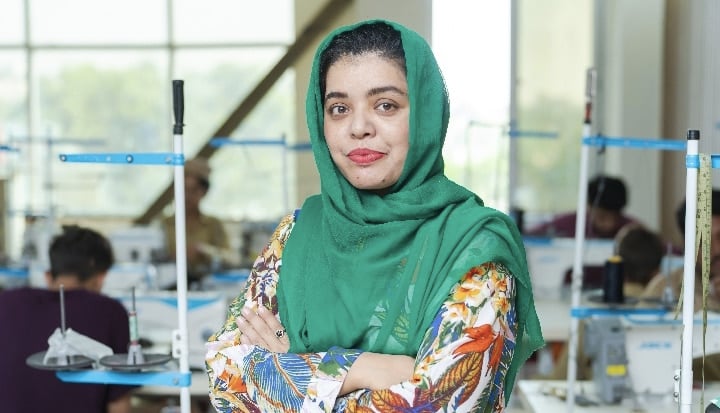Glorifying multi-tasking by women entrepreneurs must stop. Women the world over are often celebrated for juggling their business with childcare and household responsibilities. The assumption that a woman should be the primary caregiver and the man should be the breadwinner are norms so entrenched they remain consistently unchallenged. This needs to change. NGOs and businesses working in financial inclusion need to act now so that women-led businesses can thrive. Our research shows:
- In Vietnam, 80% of men and 60% of women agreed that businesswomen should be the main childcare giver, despite the pressure of running a business.
- In Peru, 80% of women interviewed say they are bound by traditional gender roles and the expectations and pressures from the family and society as caregivers.
- In Pakistan, 76% of respondents felt that family members will disapprove if a woman entrepreneur’s earnings surpass her husband’s.
One of the most alarming findings was that when women entrepreneurs start to succeed, they can face sabotage by their male family members, sometimes even violence or sexual harassment. In Pakistan, women told us if they start earning more than male family members, they are overburdened with household responsibilities to the point they are forced to cut down on, or even discontinue, their business. Furthermore, women entrepreneurs who leave the house for business without a male family member are considered less moral and subject to harassment or sexual requests in return for work-related agreements.
Revealingly, it is not just men who are piling expectations on women – it is also women themselves and their female family members. In Vietnam, mothers-in-law were revealed as staunch enforcers of the norm related to childcare, the ones most disapproving if the man does more childcare than the woman.
It is clear that little is being done to shift these norms and the time to act is now. Having worked in financial inclusion for 15 years, I have seen many fantastic initiatives focused on helping women gain better access to finance to grow their businesses. But very few initiatives try to understand or address the deeply entrenched gender norms that are holding women entrepreneurs back. Time poverty is one of the biggest challenges facing women, a condition deeply intertwined with childcare and household duties. Admittedly, shifting gender norms is not an easy task, as it requires longer-term commitment not short-term returns. But that shouldn’t stop us. At CARE we know that engaging directly with families can be transformational, increasing both the time women can spend on their business and their decision-making power. Through a combination of far-reaching social media campaigns and in-person workshops, we are beginning to see small changes through our Ignite program.
I recently met with Thu in Vietnam who runs a green business. She told me that she was really struggling with a lack of support from her husband which was affecting her marriage and her business. Following an event that we ran she told me she had seen a transformation: “On that day, for the first time, he acknowledged my work and my contribution to society and the community. Since then he is really helping out with the children and the household chores. Now I can travel much more for work.”
Having conducted this research, we are also making changes to our programming. We are developing new training, not just for women and their families, but also for our financial partners. We also continue our campaigns and outreach activities which promote and normalize shared responsibility and women’s financial and digital independence.
Despite the Ignite program launching in the midst of the pandemic, the program has unlocked 115 million USD in loan capital for women entrepreneurs, a twenty-two-fold uplift of the original program funding provided by the Mastercard Center for Inclusive Growth. 83% of Ignite participants tell us that the program has contributed to an increase in their business sales, helping to build their financial resilience.
My message to NGOs and financial institutions working in financial inclusion is clear:
- Design holistic programming for women entrepreneurs that includes addressing restrictive gender norms.
- Design programs that promote the benefits of shared responsibility in the household and the economic contributions of women entrepreneurs.
- Collect data related to perceptions and expectations around gendered roles and how these present barriers for the growth of women-led enterprises.
- Advocate for policies that respond to the specific challenges that women entrepreneurs face.
I strongly believe that investing in women always provides a return. We know that by giving women increased opportunities and time, it allows them to focus on growing their own businesses so that they can further contribute to their local economies. Women employ women and invest their incomes in their families and their communities. The benefits are indisputable.










